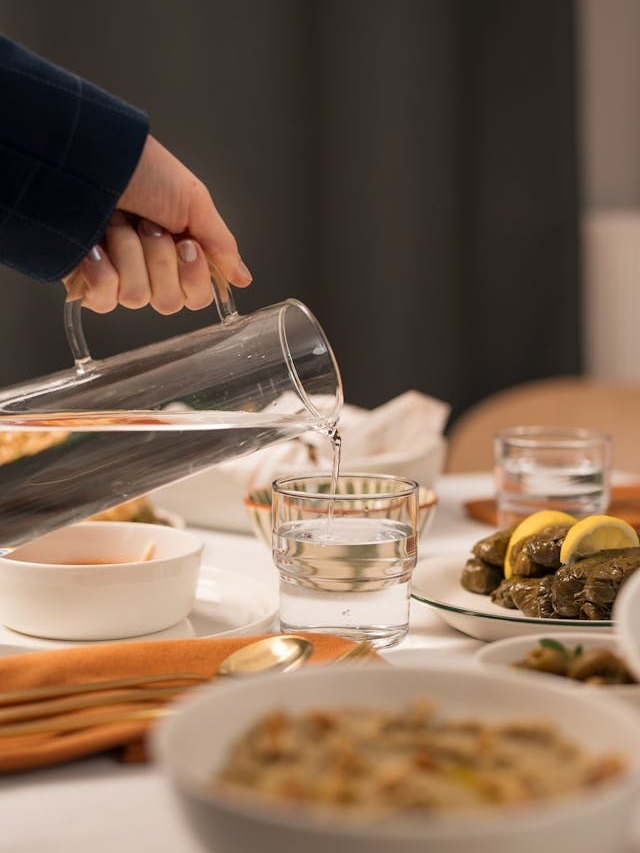It’s easy to overlook the importance of maintaining food hygiene in the comfort of our kitchens. Integrating simple yet effective food safety and hygiene practices into our daily routines can make a significant difference in promoting health and well-being for ourselves and our loved ones.
In this blog, we dive into the top tips for keeping your food safe and clean, focusing on practical steps you can take to uphold high standards of food hygiene at home.

Wash Hands and Surfaces Often
The foundation of good food hygiene starts with clean hands and surfaces. Germs can thrive in the kitchen, making it essential to wash hands thoroughly with soap and water before and after handling food, especially raw meat, poultry, and seafood. It’s equally important to keep kitchen surfaces, cutting boards, and utensils clean. Regularly disinfect areas where you prepare food, and consider using separate cutting boards for raw and cooked foods to prevent cross-contamination.
Washing your hands and cleaning surfaces might seem basic, but these steps are pivotal in maintaining hygiene practices in food preparation. Simple habits, like wiping down counters with a sanitizing solution or ensuring that your sponges and clothes are frequently cleaned or replaced, can significantly reduce the risk of spreading bacteria and other pathogens in your kitchen.
Moreover, adopting the habit of washing fruits and vegetables before storing or using them further bolsters your kitchen’s defense against contaminants. This practice not only removes visible dirt and residues but can also minimize the presence of pesticides and bacteria lurking on the surface.
Establishing a routine that includes rinsing produce under running water and using a vegetable brush for tougher skins creates an additional layer of protection in your food safety and hygiene regimen. Ensuring that every component entering your cooking space is clean sets a high standard for the overall hygiene of the meals you prepare, contributing to a healthier eating environment for everyone at home.
Separate Raw and Cooked Foods
Cross-contamination is a major cause of foodborne illnesses, and it often occurs from improper separation of raw and cooked foods. Using separate cutting boards and knives for raw meat, poultry, and seafood can prevent harmful bacteria from spreading to ready-to-eat foods. When storing food in the refrigerator, keep raw items on the lowest shelves to avoid drips onto other foods.
The practice of separating foods extends beyond just preparation; it also involves thoughtful storage. Investing in color-coded cutting boards or labels can help everyone in the household remember which items are designated for raw products versus cooked ones, enhancing your food safety and hygiene efforts.
Additionally, when packing leftovers or groceries, it’s crucial to maintain this separation principle. Ensure that raw and cooked foods are placed in different containers or bags, preventing any contact between them. This not only applies to the storage in your refrigerator but also to the way you transport food from the grocery store to your home.
Adopting this approach minimizes the risk of cross-contamination during all stages of food handling, from shopping to storage to preparation. Such diligence reinforces the hygiene practices in food preparation, making it a comprehensive strategy that safeguards the health of your family.
Cook Foods to Safe Temperatures
Cooking food to the right temperature is key to killing harmful bacteria. A food thermometer should be an essential tool in your kitchen to ensure meats, poultry, seafood, and other perishable items reach a safe internal temperature. For example, poultry should be cooked to 165°F, ground meats should be cooked to 160°F, and beef, pork, lamb, and veal steaks should be cooked to 145°F, with a 3-minute rest time.
Understanding the importance of cooking temperatures not only contributes to food safety and hygiene but also enhances the quality and flavor of your meals. By ensuring your food is cooked thoroughly, you’re not just keeping your family safe; you’re also serving delicious and hygienically prepared dishes.
Store Food Properly
Hygienic food storage plays a crucial role in preventing food spoilage and contamination. Refrigerate or freeze perishables promptly, and make sure your fridge is set to 40°F or below and your freezer to 0°F or below. Using airtight containers can extend the shelf life of your food while keeping it safe from bacteria growth.
Proper storage isn’t just about temperature; it’s also about organization and awareness. Regularly check expiration dates, and be mindful of how you arrange your fridge and pantry. This not only aids in maintaining food hygiene but also helps in minimizing food waste.
Understand Use-By and Best-Before Dates
Knowing the difference between “use-by” and “best-before” dates is crucial for food safety and hygiene. Use-by dates are about safety, indicating when a product should no longer be eaten. Best-before dates refer to quality, suggesting when food might start to lose its freshness but is still safe to consume. Paying attention to these dates can help you make informed decisions about food safety.
This awareness encourages not only safer food consumption practices but also contributes to reducing food waste. By understanding these labels, you can plan meals more efficiently and store your food in ways that extend its usability without compromising on hygiene.
Keep Your Kitchen Safe
Maintaining food hygiene at home is an ongoing commitment to health and safety. The tips shared here are not just guidelines but essential practices that ensure our meals are not only delicious but safe. By incorporating these habits into our daily routines, we play a crucial role in preventing foodborne illnesses.
Remember, a clean kitchen is the cornerstone of a healthy home. Let’s make food hygiene a priority in our lives, ensuring that every meal we prepare for ourselves and our loved ones is both safe and satisfying.
Hey welcome to my blog . I am a modern women who love to share any tips on lifestyle, health, travel. Hope you join me in this journey!

Speak Your Mind